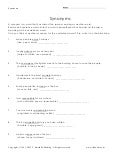

Fool-killer "imaginary personage invested with authority to put to death anybody notoriously guilty of great folly" is from 1851, American English. Fool's ballocks is described in OED as "an old name" for the green-winged orchid. Foolosopher, a useful insult, is in a 1549 translation of Erasmus.

Fool's paradise "illusory state of happiness based on ignorance or erroneous judgment" is from mid-15c. Feast of Fools (early 14c., from Medieval Latin festum stultorum) was the burlesque festival celebrated in some churches on New Year's Day in medieval times. To make a fool of (someone) "cause to appear ridiculous" is from 1620s ( make fool "to deceive, make (someone) appear a fool" is from early 15c.). The French word probably also got into English via its borrowing in the Scandinavian languages of the vikings (Old Norse fol, Old Danish fool, fol). 1300, though it is not always possible to tell whether the reference is to a professional entertainer counterfeiting mental weakness or an amusing lunatic, and the notion of the fool sage whose sayings are ironically wise is also in English from c. Meaning "jester, court clown" in English is attested c. Īlso used in Middle English for "sinner, rascal, impious person" (late 13c.). a much stronger sense than it had at an earlier period it has now an implication of insulting contempt which does not in the same degree belong to any of its synonyms, or to the derivative foolish. One makes the "idiot" sense original, the other the "jester" sense. The sense evolution probably is from Vulgar Latin use of follis in a sense of "windbag, empty-headed person." Compare also Sanskrit vatula- "insane," literally "windy, inflated with wind." But some sources suggest evolution from Latin folles "puffed cheeks" (of a buffoon), a secondary sense from plural of follis. Early 13c., "silly, stupid, or ignorant person," from Old French fol "madman, insane person idiot rogue jester," also "blacksmith's bellows," also an adjective meaning "mad, insane" (12c., Modern French fou), from Medieval Latin follus (adj.) "foolish," from Latin follis "bellows, leather bag," from PIE root *bhel- (2) "to blow, swell."


 0 kommentar(er)
0 kommentar(er)
